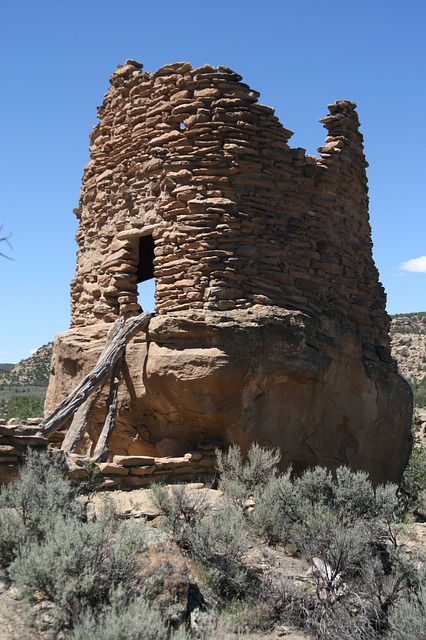One of the most exciting social findings of the past half century has been the discovery of widespread generational cascades. A generational cascade is a metaphysical process which starts at the top of one age group and tumbles all the way down to the bottom or the latest descendant. It can even mount upward and affect lives of people that precede the phenomenon. And the classic example of what could happen is something that we all fear, which can be summed up in one word: forgotten. No one wants to be overlooked. Disremembered is a ruthless term. We all know how it feels to be ignored, unnoticed, or disregarded. People employ hope and determination to help them face trials and confront obstacles. Yet we know these challenges can impact their children and even their unborn posterity, but perhaps we are slightly less aware that these anecdotes give life and meaning to many other people, as well, who would otherwise live lonely and pitiful lives. You may know someone who writes in a diary or records a history of sorts. But a simple count shows that those who keep a regular journal for any substantial length of time are few and far between. These connections are valuable and the information is interesting and fun to learn, but it can also be life changing.
 For example, the nucleus of the Navajo generation crossed the Bering Strait from the west and gradually moved south and east. Some anthropologists assume that this migration began 3,000 years ago, and it must have taken several hundred years for the people who were to become the Navajos to traverse western Canada from north to south and finally arrive in the southwestern United States. No one knows the detail of this five-century trek, but imagination pictures groups of people, large enough to hold their own against the vicissitudes of an unknown land, following dim trails laid out by other tribes speaking foreign languages who had entered the New World before them. No doubt they have a rich history of their circumstances and culture of their own. Yet the record of that initial journey from the northern ocean to the Southwest is preserved only in Navajo tradition, since they had no written language at the time. Many facts have been captured in writing now to honor and esteem this community of people. But before these connections turned up—they had been absent for more than 2500 years—this tribe was essentially unknown to the rest of the world.
For example, the nucleus of the Navajo generation crossed the Bering Strait from the west and gradually moved south and east. Some anthropologists assume that this migration began 3,000 years ago, and it must have taken several hundred years for the people who were to become the Navajos to traverse western Canada from north to south and finally arrive in the southwestern United States. No one knows the detail of this five-century trek, but imagination pictures groups of people, large enough to hold their own against the vicissitudes of an unknown land, following dim trails laid out by other tribes speaking foreign languages who had entered the New World before them. No doubt they have a rich history of their circumstances and culture of their own. Yet the record of that initial journey from the northern ocean to the Southwest is preserved only in Navajo tradition, since they had no written language at the time. Many facts have been captured in writing now to honor and esteem this community of people. But before these connections turned up—they had been absent for more than 2500 years—this tribe was essentially unknown to the rest of the world.
Humanity that does not keep records is destined to become lost. But as soon as the people of the world begin logging histories of some sort, they are remembered for good or ill in perpetuity. Even though these authors may be initially unknown, they start to have the most remarkable effect. First, of course, they influence their immediate families, but that isn’t the major thing. Much more significantly, they radically change the behavior of their extended families and communities. Their identities impact certain parts of the world. The places they live improve and flourish most significantly, particularly with their own children and posterity. And immediately those people start to grow and rejuvenate others. In some families the lives of the children improve immediately and courtship and dating in just a few years means new families will start and quickly strengthen parents and children and family relationships. And as soon as that happens, the communities start developing and entire nations progress. The number of happy people and joyful homes increases greatly. The neighborhoods and tribes advance and brotherhood grows, because joy was meant to be shared. And fulfilled people, like personal history authors, are ecosystem engineers. They create momentum that involves others and builds families and provides habitats of learning for children and kinfolks and tribes and schools and communities and states and nations. The family unit is strengthened, and as a result of that the number of marriage ceremonies and schools begin to rise, which means more homes, more families, more marriages, and more children. Others in the communities and people all across the world come to benefit from the words the authors compose about their triumphs and trials, hardship and hope, suffering, success, and family longevity. The solitary and unmarried benefit, too, because they are part of a bigger family. Welcomed and encouraged to participate and contribute, the single profit as well. And our population begins to rise and thrive, partly also because they are happier and more fulfilled. And the lonely disappear as they are swallowed up in acceptance, unity, and consensus. Their perceived value is reinforced by the impact of those both living and the dead who preceded them, but here’s where it gets really interesting. The histories change the behavior of the generations: adults get help, children are more prepared, we find solutions to problems and answers to our questions and concerns—connected people are better off and happier.
Family members flourish. They have less contention and more understanding and gratitude, less depression and greater appreciation; hardships narrow, friendships form, connections bless lives, all of which is great for family health and community well-being. The lives change in response to the generational cascades. And the reason is that the relationships stabilize the community and families are reinforced, so they endure longer and collapse less, becoming more fixed in their course and committed to one another. Similarly, by capturing stories and sharing their connections, families and communities recover on all familial sides. There are less divisions and more longevity because human connections stabilize that as well. So personal histories, though small in number, transform not just life experiences and lessons learned in this huge population of people, but also its quality of life.
The wonder of it is that this all starts with the seemingly small act of recording one’s life experiences for the benefit of others, and personal histories turn out blessing everyone.
That’s how we change lives in the human family.
Have you captured the fruits of your labors?
“Life is a succession of lessons which must be lived to be understood.”
― Ralph Waldo Emerson
In 1989, Walter Penning formed a consultancy based in Salt Lake City and empowered his clients by streamlining processes and building a loyal, lifetime customer base with great customer service. His true passion is found in his family. He says the best decision he ever made was to marry his sweetheart and have children. The wonderful family she has given him and her constant love, support, and patience amid life’s challenges is his panacea.







